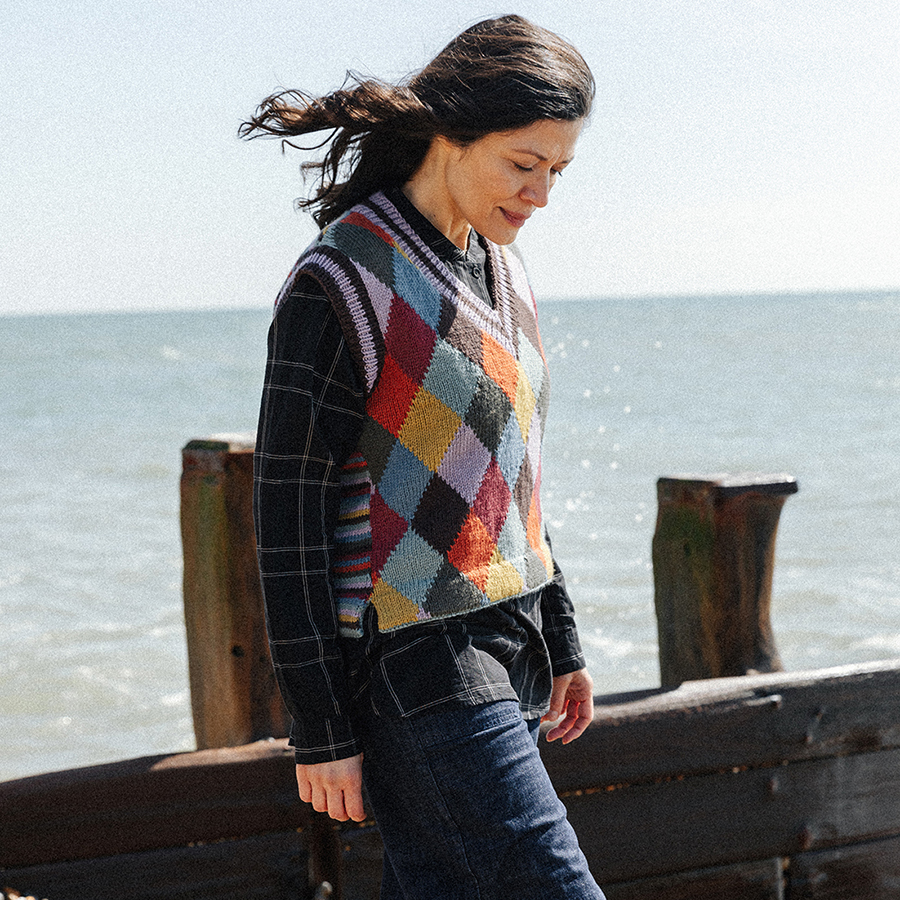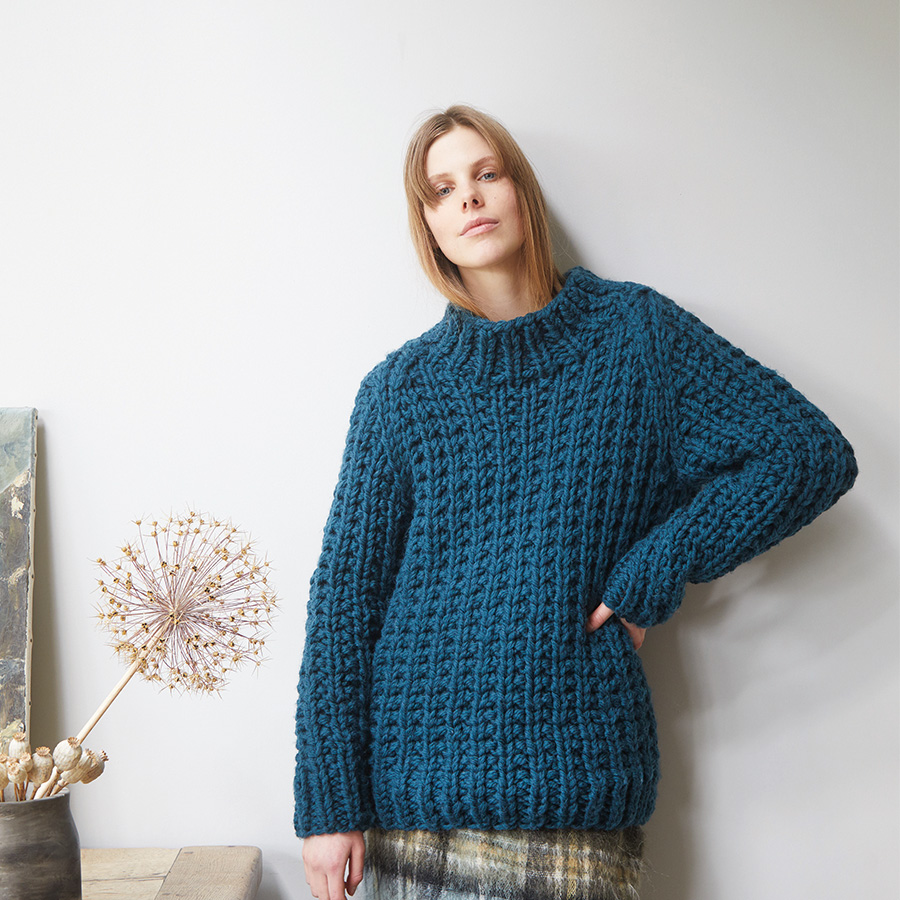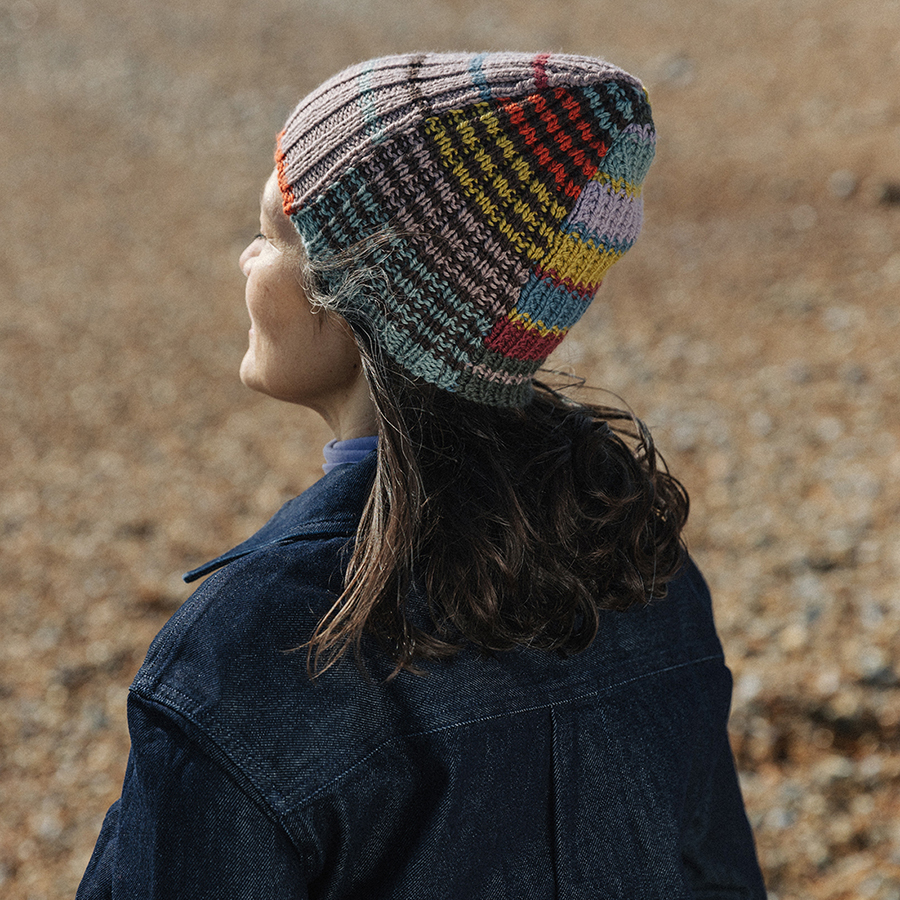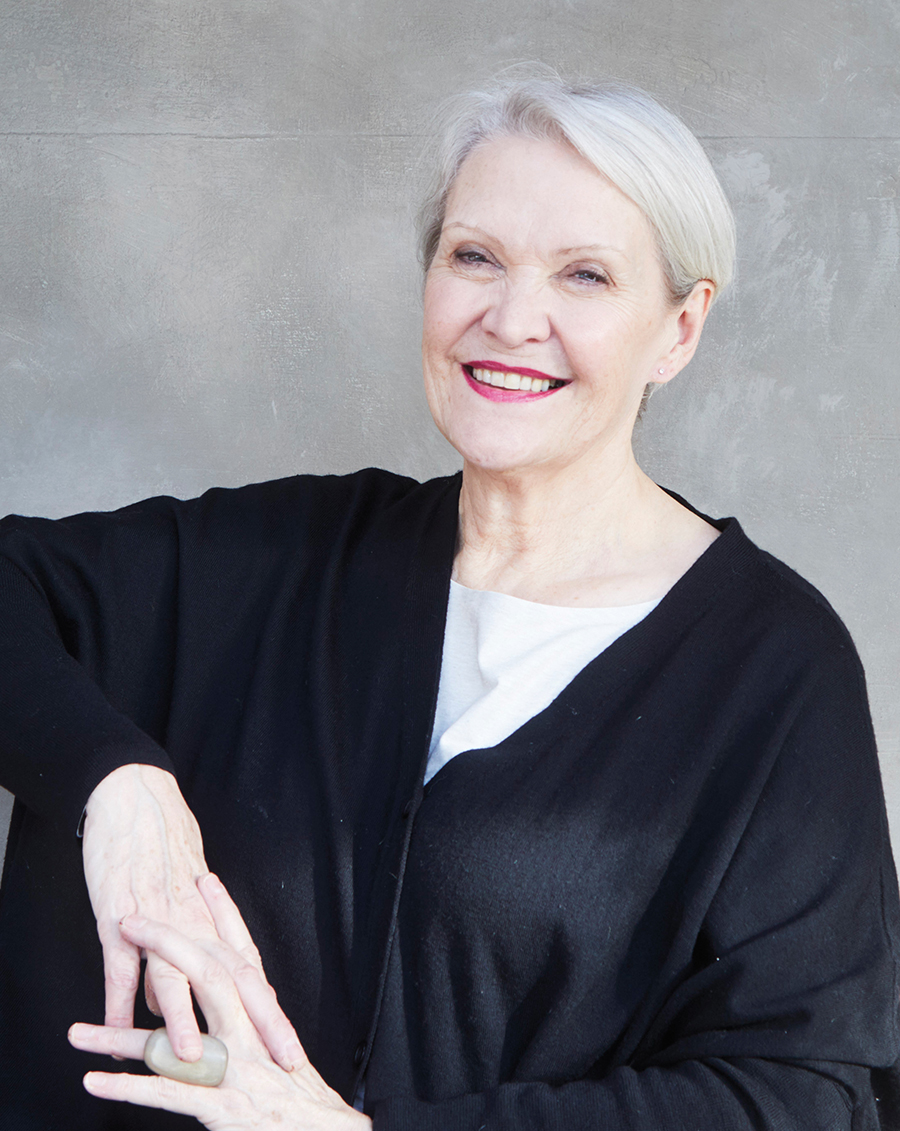
It’s important not to get too hung up on achieving perfection
Known for her simple design aesthetic, Erika admits to an embarrassingly large yarn stash, takes inspiration from the landscape and is very bad at knowing when to stop!
classic and a little bit androgynous
I love utilitarian workwear shapes
that are both stylish and functional, and I’m always drawn to quality fabrics. I often buy menswear pieces as I prefer the fit, or I will deliberately turn a jumper inside out to show the seams. Having travelled a lot for work throughout my life I have developed, out of necessity, a modular wardrobe with basic understated pieces that can easily translate from a meeting to a workshop, and then out for dinner, just by adding a necklace or a slick of bright lipstick. It has been said I am never knowingly under-accessorised, and I do have a penchant for chunky rings and bangles. I feel like they are my personal armour for when I present myself to the world.
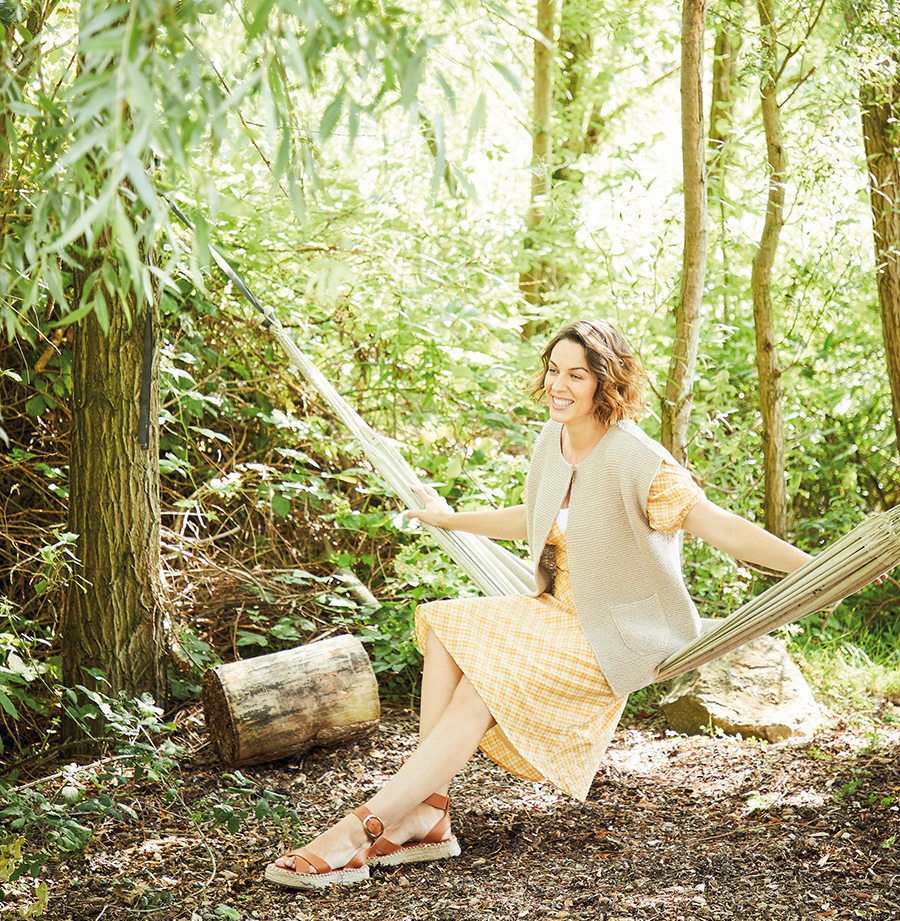
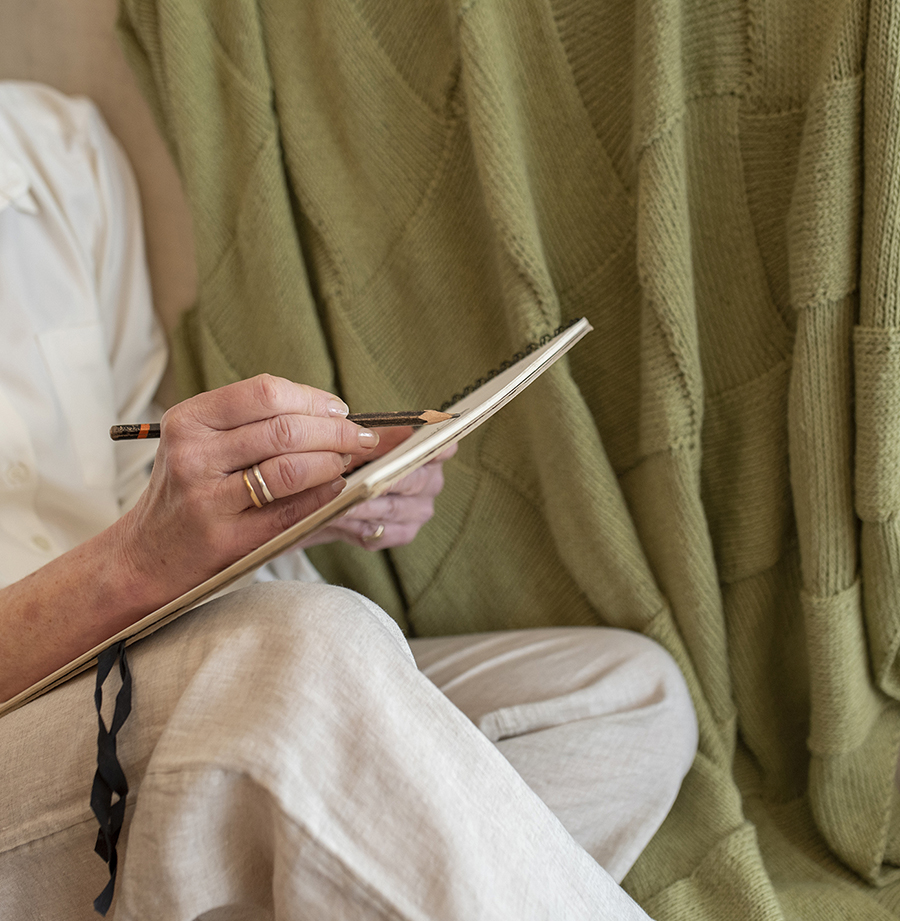
is embarrassingly large!
it has been known to take over whole rooms of the house
I am mostly very good at using up oddments and I love the process of combining different fibres and gauges and repurposing overlooked items, but there are some precious skeins that I have carried with me for many years and I now find difficult to use up or part with. For me a design usually starts with a texture, so I’m forever cutting up lengths of yarns from my stash for mood boards or experimental swatching.
as the unmitigated chaos of the scribbles inside my head carefully curated, refined and pared back to a very simple aesthetic that I hope is accessible to everyone. And usually with a little asymmetric or unexpected detail.
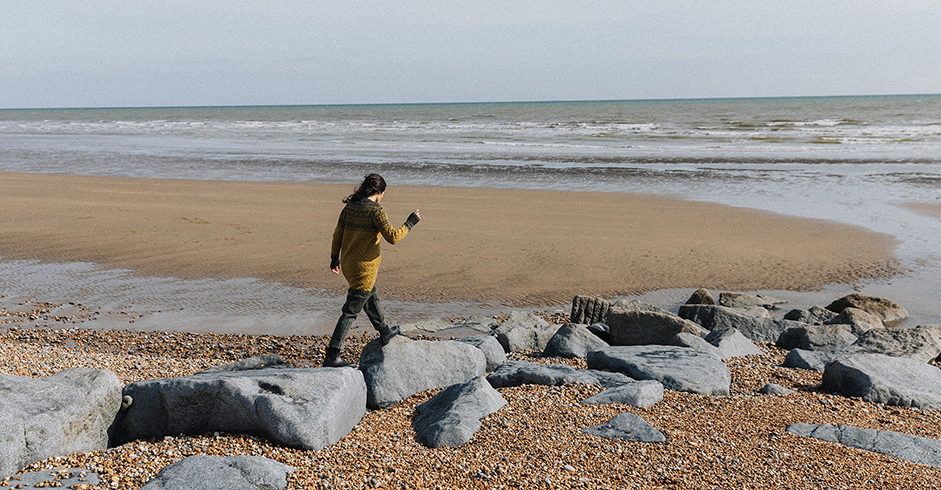
My favourite Rowan yarn from the current collection would have to be Creative Linen.
Natural fibres are always my go-to and linen is my favourite plant fibre, but it can be a little coarse for some projects on its own, so this blend with cotton adds the required softness without losing the dry hand and wonderful drape.
The discontinued Rowan yarn I wish I could bring back
is the aran-weight yarn ‘Magpie’, particularly in the tweed effect. I love the texture of this woollen-spun yarn in contrast to the much sleeker worsted spinning.
is reverse stocking stitch
it's less bulky than garter stitch
and I love the simplicity of revealing a completely different texture, just by looking at the ‘wrong’ side of the work.
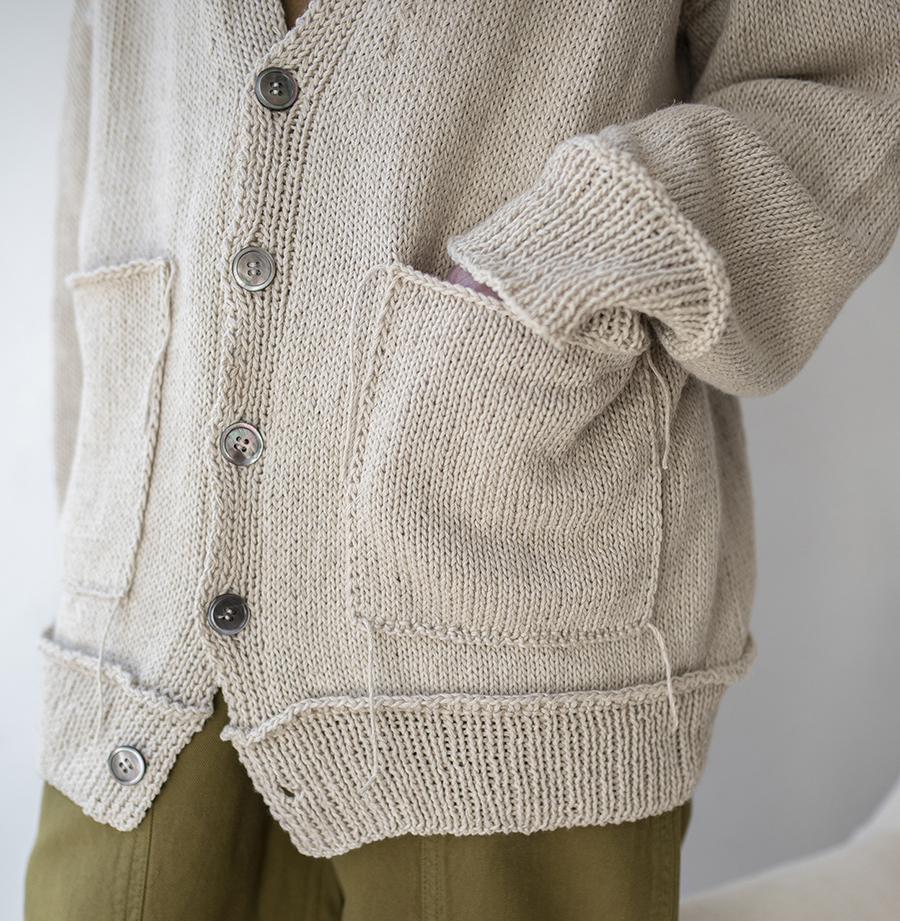
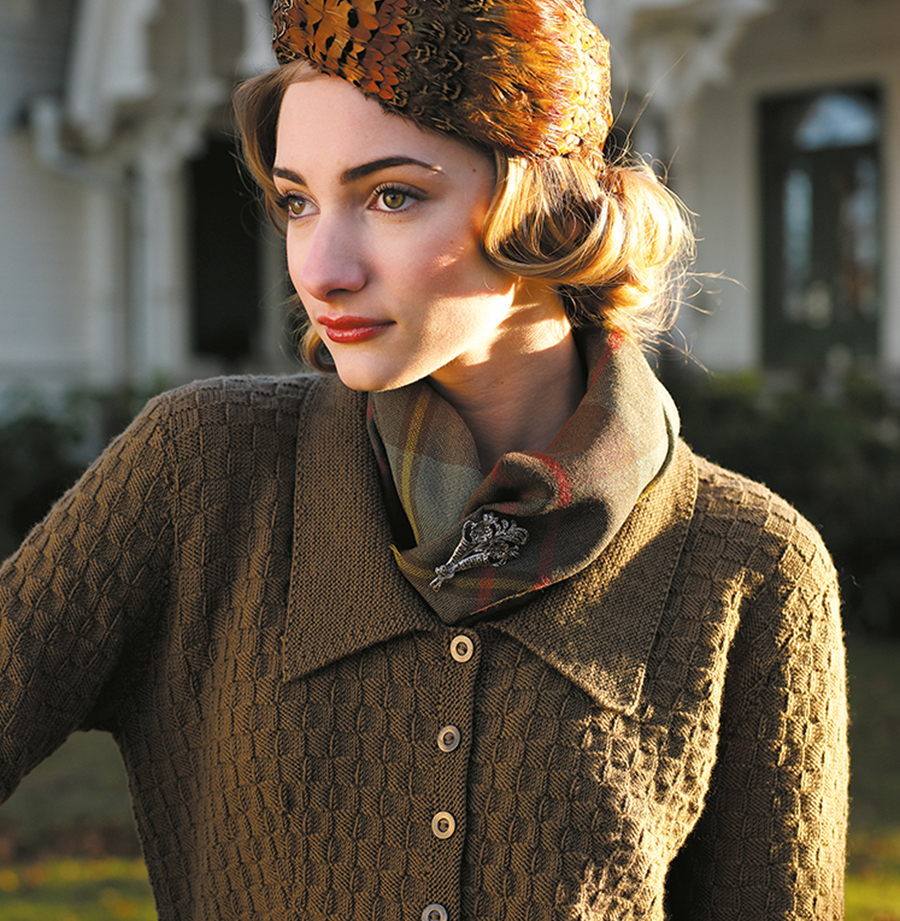
for knitwear
it would have to be Marion Foale
Her classic shapes informed by an exceptional knowledge of tailoring were a revelation in amongst all the intarsia picture knits of the 1980s. She’s in her 80s now and still designing for Margaret Howell—iconic in anyone’s book. And for everything else its Yohji Yamamoto. I love the Japanese aesthetic and their attitude towards design in all aspects of life and culture, but Yohji is a rare creative combining artistry, tailoring and intellect…and all in monochromatic black!
everything really
sometimes it’s a blank sheet
of paper and a newly sharpened pencil or sitting quietly on the beach opposite my house and watching the waves crash over the pebbles. At other times I need vibrant colour and an assault on the senses, so I’ll visit a gallery and immerse myself in the detail of ancient textiles, embroidered and embellished with beads and five hundred colours, or take a trip to a bustling street market with fruit and veg traders and bric-a-brac and a noisy crowd. But it always comes back to the landscape—an ever changing and constant source of just about everything that I need.
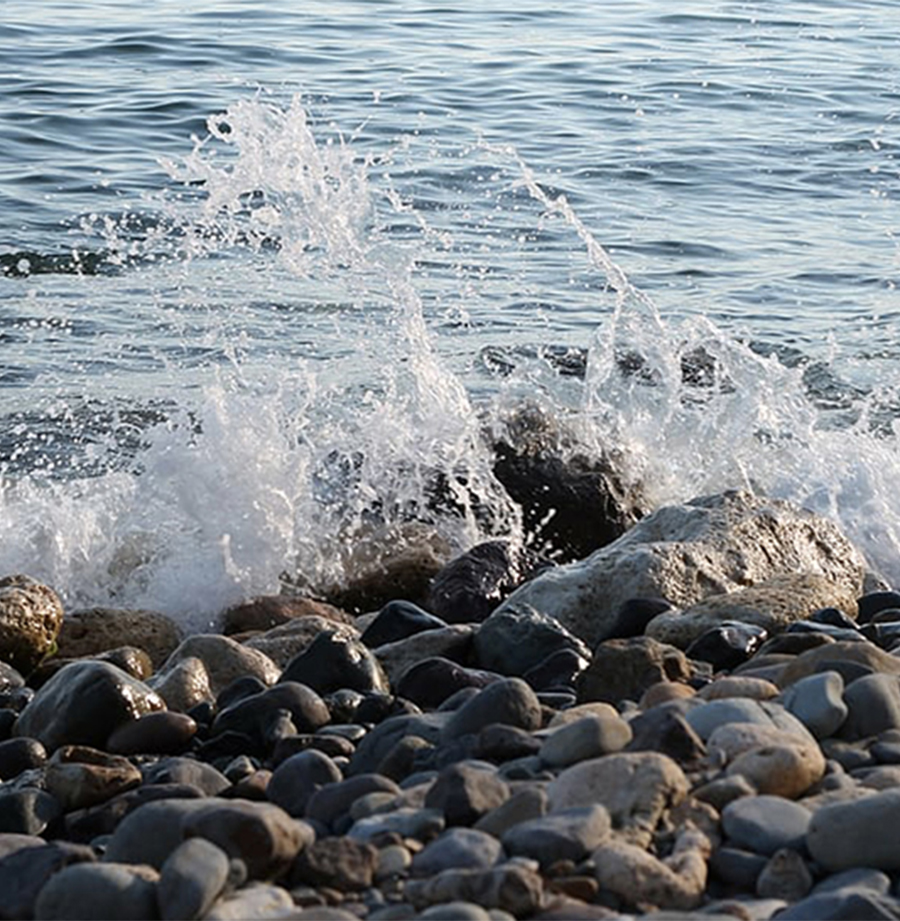
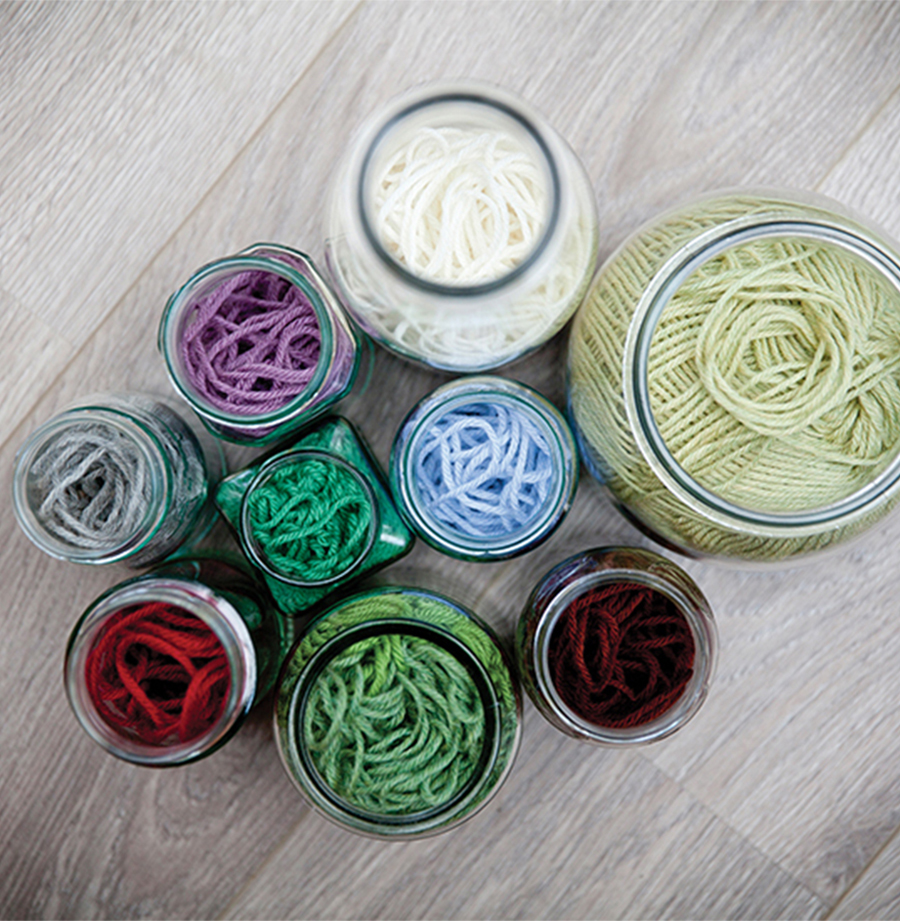
I'm selecting colours and making up palettes
in my studio I have lots of glass jars
with collected scraps of yarns, fabrics and ephemera all sorted by shade. These are an invaluable resource when designing a new palette—that and great lighting!
If I wasn’t a knitwear designer I would have liked to have been an architect
Although I’m not sure that I would have passed the technical exams but I love thinking about volume and proportion and how people use a space. I think there’s a lot of overlap with knitwear design, as what you are creating is a three-dimensional form that has to work for a moving body. Otherwise I would have been a painter—I studied Fine Art at College—and I have been experimenting again recently with mark making on paper.
I am very bad at knowing when to stop
I think that is probably a curse of most creative people, and especially when your passion becomes your career the boundaries are forever blurred. I can never really switch off, and even once a project is completed, I find myself going back over it and wondering what if I had just made that hem longer, or changed the stitch, or used a different fibre.
A dear friend and mentor said this to me when I started my first ready-to-wear handknit label. Handknitting is very often a process of trial and error and having worked predominantly in the fashion industry with machine knits up until that point, it took me a long time to accept that there was a value in the patina of the handcrafted, and that sometimes what was a mistake could actually teach you a new technique or be a feature in and of itself. Design is always a process and it’s important not to get too hung up on achieving perfection.


